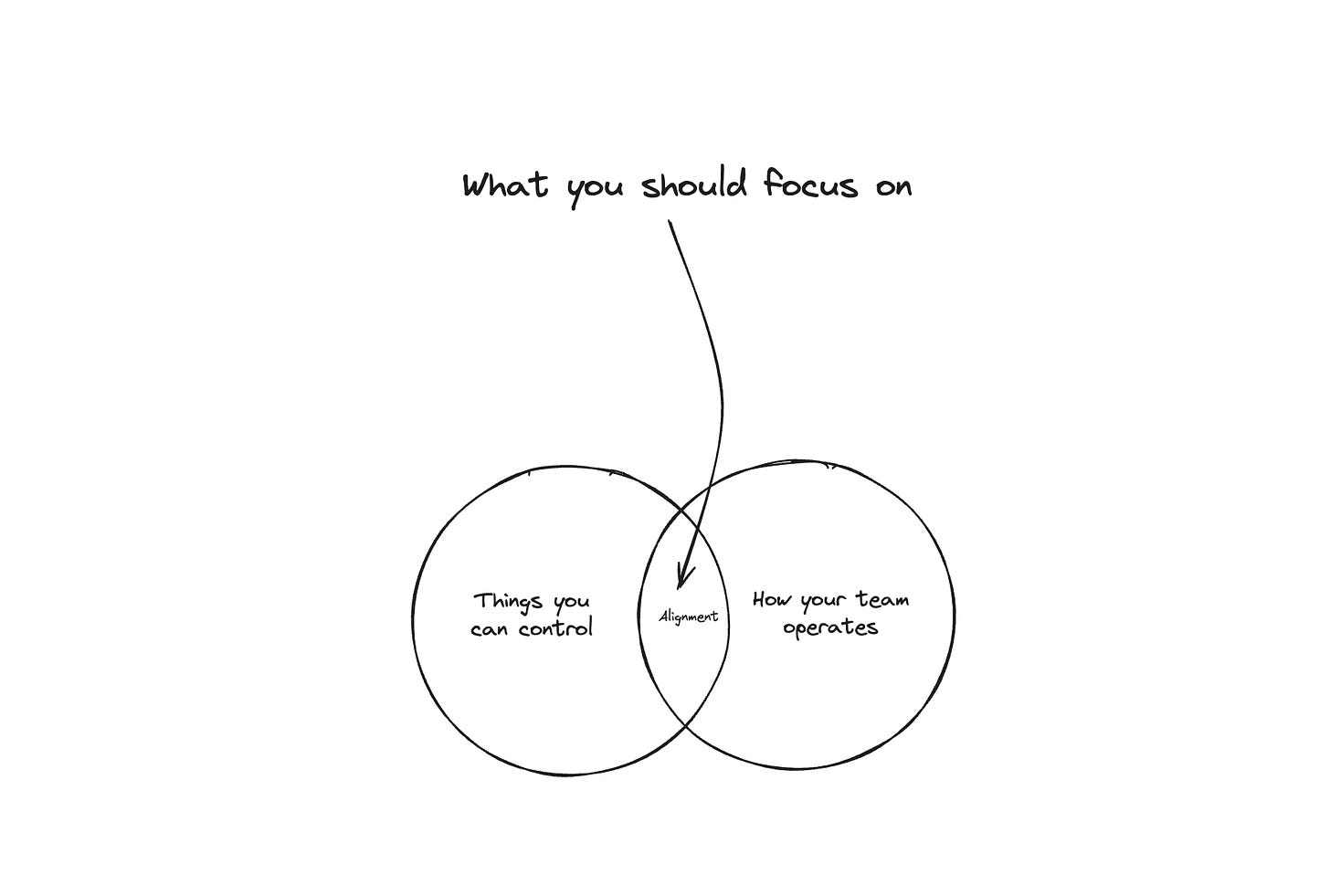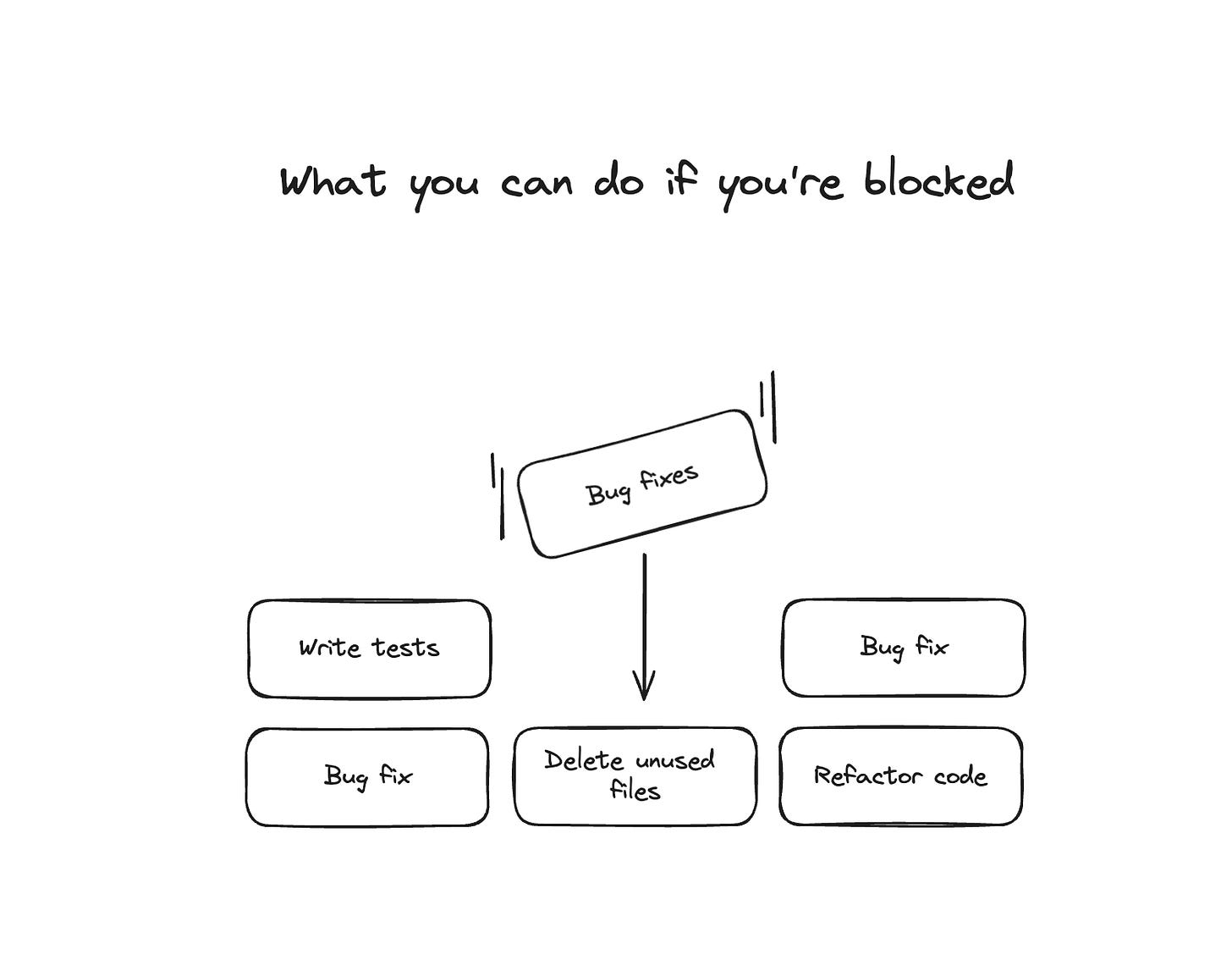Got stuck at work? It’s not the end of the world
Tips on how you can proactively unblock yourself and maximize your time while you are blocked at work.
👋 Hi, this is Joshua with this week’s newsletter. I write about my experiences building products at startups/big tech.
Last week, I flew to Singapore for the Developer Creators and Online Communities Summit 2024. It was so great to meet old friends and make new ones in person!
In this issue, I will share with you my thought process whenever I’m stuck at work. ⏩
Stuck? It happens. Whether you are working on a new project, building with external vendors, or even in design reviews — tackling how to name a variable, you might get stuck in between. Pretending all is well might seem tempting, but it is a recipe for disaster.
I have been there as well. I got stuck a few times and had difficulties getting back the momentum. It’s as if an imposter in me that kicks in and yells at my brain — “Maybe you can’t do this at all”.
Getting stuck is okay, that’s part of the work.
But, not doing anything to unblock yourself, isn’t.
Below are some of the few things I do whenever I get stuck at work 👇
When you get stuck
If you underestimated an effort, speak up and over-communicate. It’s easy to get started on a project, but it’s almost impossible to take back the time and effort that’s taken place if something isn’t right. The first time you get stuck because of this, shoot a message to your leads or managers and negotiate to adjust expectations.
If you face a complex technical issue, timebox the investigation and then get help. I often work on experimental projects like native integrations that haven’t been done before or are new to our system. When I start working on these projects, I set a schedule and timebox my investigation for a day or two. And, if I think this will take more time than planned, I ask for some help from my team or other domain experts. You’ll be surprised, they’re one message away!
A growth practice I do is to shift my mindset from
“I can’t do this” to “I can’t do this just yet”.
See The Power of Yet by Carol Dweck
When others block you
If you are delayed on reviews, try to schedule a self-reminder or a call. If your RFCs or pull request reviews are delayed, know that your team can also be busy with other things at work. However, if your team is aware of the deadlines and things are still delayed, set a reminder for follow-ups or schedule a call to try and resolve things quickly.
If others expect more than what is needed, try to negotiate and find an intermediary solution. Understand why it’s necessary to do the extra work and see if there are other things the team could be focusing on. If there are, instead of just saying “no”, offer alternatives that are aligned with the objectives, without too much compromise.
You can’t control how others operate. However, you can make it easy for them to unblock you by providing a clear path or setting expectations.
What if you can’t get yourself unblocked?
I remember a time when I was working with a vendor and they were still figuring out how to handle our use case, it exposed some of the vendor’s platform limitations, and I got stuck waiting for their resolution.
So, instead of just waiting, I proposed alternative solutions to them while fixing bugs in my projects — you can try it too 👇
Maximize your waiting time, and deliver more results. Work on tasks that are in the backlog or up next in terms of priorities. Who knows, your product managers might be so happy about it!
Keep the lights on for your project. Pick up some tasks that improve your code, whether’s a small bug fix, maintenance, or code refactor — anything that is going to be worthwhile for your project.
Help others. You can venture out from your usual day-to-day work and offer to help others. This can give you new perspectives on how they work and help you build trust and good relationships with the team.
Good luck!
Own up to your mistakes, that’s where you grow. If you acknowledge your mistakes, it can help you reflect on how you can fill the gaps and know where to improve. Finding someone to blame won’t help you.
Over to you: When was the last time you got stuck, and what did you do about it?
Thanks,
Joshua de Guzman







